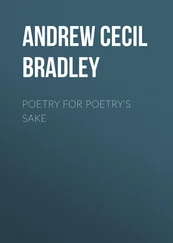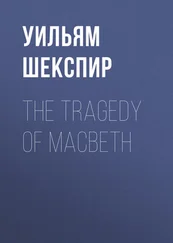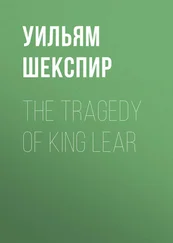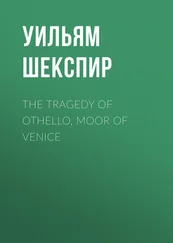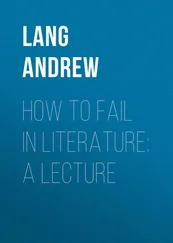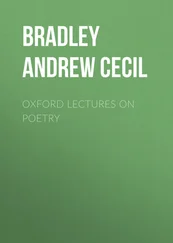Andrew Cecil Bradley - Shakespearean Tragedy - Lectures on Hamlet, Othello, King Lear, Macbeth
Здесь есть возможность читать онлайн «Andrew Cecil Bradley - Shakespearean Tragedy - Lectures on Hamlet, Othello, King Lear, Macbeth» — ознакомительный отрывок электронной книги совершенно бесплатно, а после прочтения отрывка купить полную версию. В некоторых случаях можно слушать аудио, скачать через торрент в формате fb2 и присутствует краткое содержание. Жанр: Биографии и Мемуары, foreign_antique, на английском языке. Описание произведения, (предисловие) а так же отзывы посетителей доступны на портале библиотеки ЛибКат.
- Название:Shakespearean Tragedy: Lectures on Hamlet, Othello, King Lear, Macbeth
- Автор:
- Жанр:
- Год:неизвестен
- ISBN:нет данных
- Рейтинг книги:5 / 5. Голосов: 1
-
Избранное:Добавить в избранное
- Отзывы:
-
Ваша оценка:
- 100
- 1
- 2
- 3
- 4
- 5
Shakespearean Tragedy: Lectures on Hamlet, Othello, King Lear, Macbeth: краткое содержание, описание и аннотация
Предлагаем к чтению аннотацию, описание, краткое содержание или предисловие (зависит от того, что написал сам автор книги «Shakespearean Tragedy: Lectures on Hamlet, Othello, King Lear, Macbeth»). Если вы не нашли необходимую информацию о книге — напишите в комментариях, мы постараемся отыскать её.
Shakespearean Tragedy: Lectures on Hamlet, Othello, King Lear, Macbeth — читать онлайн ознакомительный отрывок
Ниже представлен текст книги, разбитый по страницам. Система сохранения места последней прочитанной страницы, позволяет с удобством читать онлайн бесплатно книгу «Shakespearean Tragedy: Lectures on Hamlet, Othello, King Lear, Macbeth», без необходимости каждый раз заново искать на чём Вы остановились. Поставьте закладку, и сможете в любой момент перейти на страницу, на которой закончили чтение.
Интервал:
Закладка:
If now we ask whether any special danger lurked here , how shall we answer? We must answer, it seems to me, 'Some danger, no doubt, but, granted the ordinary chances of life, not much.' For, in the first place, that idea which so many critics quietly take for granted—the idea that the gift and the habit of meditative and speculative thought tend to produce irresolution in the affairs of life—would be found by no means easy to verify. Can you verify it, for example, in the lives of the philosophers, or again in the lives of men whom you have personally known to be addicted to such speculation? I cannot. Of course, individual peculiarities being set apart, absorption in any intellectual interest, together with withdrawal from affairs, may make a man slow and unskilful in affairs; and doubtless, individual peculiarities being again set apart, a mere student is likely to be more at a loss in a sudden and great practical emergency than a soldier or a lawyer. But in all this there is no difference between a physicist, a historian, and a philosopher; and again, slowness, want of skill, and even helplessness are something totally different from the peculiar kind of irresolution that Hamlet shows. The notion that speculative thinking specially tends to produce this is really a mere illusion.
In the second place, even if this notion were true, it has appeared that Hamlet did not live the life of a mere student, much less of a mere dreamer, and that his nature was by no means simply or even one-sidedly intellectual, but was healthily active. Hence, granted the ordinary chances of life, there would seem to be no great danger in his intellectual tendency and his habit of speculation; and I would go further and say that there was nothing in them, taken alone, to unfit him even for the extraordinary call that was made upon him. In fact, if the message of the Ghost had come to him within a week of his father's death, I see no reason to doubt that he would have acted on it as decisively as Othello himself, though probably after a longer and more anxious deliberation. And therefore the Schlegel-Coleridge view (apart from its descriptive value) seems to me fatally untrue, for it implies that Hamlet's procrastination was the normal response of an over-speculative nature confronted with a difficult practical problem.
On the other hand, under conditions of a peculiar kind, Hamlet's reflectiveness certainly might prove dangerous to him, and his genius might even (to exaggerate a little) become his doom. Suppose that violent shock to his moral being of which I spoke; and suppose that under this shock, any possible action being denied to him, he began to sink into melancholy; then, no doubt, his imaginative and generalising habit of mind might extend the effects of this shock through his whole being and mental world. And if, the state of melancholy being thus deepened and fixed, a sudden demand for difficult and decisive action in a matter connected with the melancholy arose, this state might well have for one of its symptoms an endless and futile mental dissection of the required deed. And, finally, the futility of this process, and the shame of his delay, would further weaken him and enslave him to his melancholy still more. Thus the speculative habit would be one indirect cause of the morbid state which hindered action; and it would also reappear in a degenerate form as one of the symptoms of this morbid state.
Now this is what actually happens in the play. Turn to the first words Hamlet utters when he is alone; turn, that is to say, to the place where the author is likely to indicate his meaning most plainly. What do you hear?
O, that this too too solid flesh would melt,
Thaw and resolve itself into a dew!
Or that the Everlasting had not fix'd
His canon 'gainst self-slaughter! O God! God!
How weary, stale, flat and unprofitable,
Seem to me all the uses of this world!
Fie on't! ah fie! 'tis an unweeded garden,
That grows to seed; things rank and gross in nature
Possess it merely.
Here are a sickness of life, and even a longing for death, so intense that nothing stands between Hamlet and suicide except religious awe. And what has caused them? The rest of the soliloquy so thrusts the answer upon us that it might seem impossible to miss it. It was not his father's death; that doubtless brought deep grief, but mere grief for some one loved and lost does not make a noble spirit loathe the world as a place full only of things rank and gross. It was not the vague suspicion that we know Hamlet felt. Still less was it the loss of the crown; for though the subserviency of the electors might well disgust him, there is not a reference to the subject in the soliloquy, nor any sign elsewhere that it greatly occupied his mind. It was the moral shock of the sudden ghastly disclosure of his mother's true nature, falling on him when his heart was aching with love, and his body doubtless was weakened by sorrow. And it is essential, however disagreeable, to realise the nature of this shock. It matters little here whether Hamlet's age was twenty or thirty: in either case his mother was a matron of mature years. All his life he had believed in her, we may be sure, as such a son would. He had seen her not merely devoted to his father, but hanging on him like a newly-wedded bride, hanging on him
As if increase of appetite had grown
By what it fed on.
He had seen her following his body 'like Niobe, all tears.' And then within a month—'O God! a beast would have mourned longer'—she married again, and married Hamlet's uncle, a man utterly contemptible and loathsome in his eyes; married him in what to Hamlet was incestuous wedlock; 43married him not for any reason of state, nor even out of old family affection, but in such a way that her son was forced to see in her action not only an astounding shallowness of feeling but an eruption of coarse sensuality, 'rank and gross,' 44speeding post-haste to its horrible delight. Is it possible to conceive an experience more desolating to a man such as we have seen Hamlet to be; and is its result anything but perfectly natural? It brings bewildered horror, then loathing, then despair of human nature. His whole mind is poisoned. He can never see Ophelia in the same light again: she is a woman, and his mother is a woman: if she mentions the word 'brief' to him, the answer drops from his lips like venom, 'as woman's love.' The last words of the soliloquy, which is wholly concerned with this subject, are,
But break, my heart, for I must hold my tongue!
He can do nothing. He must lock in his heart, not any suspicion of his uncle that moves obscurely there, but that horror and loathing; and if his heart ever found relief, it was when those feelings, mingled with the love that never died out in him, poured themselves forth in a flood as he stood in his mother's chamber beside his father's marriage-bed. 45
If we still wonder, and ask why the effect of this shock should be so tremendous, let us observe that now the conditions have arisen under which Hamlet's highest endowments, his moral sensibility and his genius, become his enemies. A nature morally blunter would have felt even so dreadful a revelation less keenly. A slower and more limited and positive mind might not have extended so widely through its world the disgust and disbelief that have entered it. But Hamlet has the imagination which, for evil as well as good, feels and sees all things in one. Thought is the element of his life, and his thought is infected. He cannot prevent himself from probing and lacerating the wound in his soul. One idea, full of peril, holds him fast, and he cries out in agony at it, but is impotent to free himself ('Must I remember?' 'Let me not think on't'). And when, with the fading of his passion, the vividness of this idea abates, it does so only to leave behind a boundless weariness and a sick longing for death.
Читать дальшеИнтервал:
Закладка:
Похожие книги на «Shakespearean Tragedy: Lectures on Hamlet, Othello, King Lear, Macbeth»
Представляем Вашему вниманию похожие книги на «Shakespearean Tragedy: Lectures on Hamlet, Othello, King Lear, Macbeth» списком для выбора. Мы отобрали схожую по названию и смыслу литературу в надежде предоставить читателям больше вариантов отыскать новые, интересные, ещё непрочитанные произведения.
Обсуждение, отзывы о книге «Shakespearean Tragedy: Lectures on Hamlet, Othello, King Lear, Macbeth» и просто собственные мнения читателей. Оставьте ваши комментарии, напишите, что Вы думаете о произведении, его смысле или главных героях. Укажите что конкретно понравилось, а что нет, и почему Вы так считаете.





